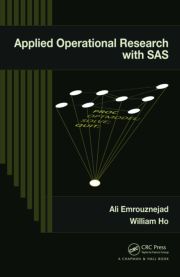Revolutionising Search Experience: Intelligent Search Engines Powered by Artificial Intellgence and Machine Learning



Special issue on: Revolutionising Search Experience: Intelligent Search Engines Powered by Artificial Intelligence and Machine Learning
Journal: Machine Learning with Applications
Guest Editors:
Professor Ali Emrouznejad, Director of Centre for Business Analytics in Practice, Surrey Business School, University of Surrey, Guildford, Surrey, UK, a.emrouznejad@surrey.ac.uk
Professor Vincent Charles, University of Bradford, Bradford, UK, c.vincent3@bradford.ac.uk
Details: https://bit.ly/MLWA-SearchEngine
Intelligent Search Engines
In recent years, intelligent search engines have transformed the way we search, discover, and consume information online by utilising Artificial Intelligence (AI) and Machine Learning (ML) technologies to deliver search results that are more precise, relevant, and personalised. While traditional search engines rely on predefined algorithms based on keyword matching and ranking factors that can often result in irrelevant or incomplete search results, intelligent search engines use AI and ML algorithms to comprehend the intention behind a user’s search query and offer more accurate, relevant, and personalised results, leading to more efficient and effective information retrieval, and consequently, increased user adoption. Natural Language Processing (NLP), Natural Language Understanding (NLU), and analysis of various signals such as search history, location, device type, preferences, and user behaviour are used by intelligent search algorithms to better understand what users are looking for. Moreover, existing AI- and ML-based search engines often exhibit biases, which are a result of the training data, the algorithms and sample used, and the user behaviour, among others. Hence, developing new AI- and ML-based search engines that are unbiased, transparent, inclusive, and ethical is crucial for ensuring fair and equitable access to information, and require a multi-faceted approach that involves careful attention to the design, development, and evaluation of such intelligent search engines. As the complexity of intelligent search engines increases, it is also important to consider issues related to the privacy and security of users’ sensitive personal data collected by the engines, along with transparency and accountability issues. Thus, developing intelligent search engines with enhanced transparency, privacy, and security systems is imperative.
The aim of this special issue on “Revolutionising Search Experience: Intelligent Search Engines Powered by Artificial Intelligence and Machine Learning” is to bring together cutting-edge research on the latest advancements in intelligent search engines and their potential to revolutionise the search experience for users. We welcome researchers and practitioners to submit their contributions and share their innovative research on the latest advancements in intelligent search engines.
Scope of the Special Issue: Topics include, but are not limited to:
- AI and ML algorithms for search relevance and personalisation
- AI and ML algorithms for search engine optimisation
- AI and ML algorithms for more inclusive and equitable search engines
- AI and ML algorithms for enhancing the transparency, privacy, and security of search engines
- Recommender systems for search engines
- NLP and NLU techniques for intelligent search
- Semantic web and knowledge graphs for intelligent search
- User behaviour analysis for personalised search
- Search intent and context analysis
- Conversational search and chatbots
- Integration of intelligent search engines with other technologies, such as voice search and virtual assistants
- Use cases and real-world applications of intelligent search engines in various domains, such as e-commerce, finance, marketing and advertising, healthcare, education, travel and hospitality, and government and public services, among others
- Evaluation metrics for intelligent search, including new evaluation metrics for assessing the fairness and inclusivity of search engines
We welcome both theoretical and practical contributions from academia and industry. All submitted papers will be peer-reviewed and selected based on their originality, significance, and technical quality.
About MLWA journal and Publication fee:
Although the journal Machine Learning with Applications is an Open Access journal, publication fees will be waived for the articles published in this Special Issue. More on the MLWA journal can be found at: https://www.sciencedirect.com/journal/machine-learning-with-applications.
Important Dates:
- Submission deadline: August 31, 2023
- Notification of first round of review results: October 31, 2023
- Submission of revised papers: November 20, 2023
- Final acceptance decisions notifications: December 21, 2023
All papers must be submitted through the journal’s online submission system. Please follow the journal’s author guidelines for formatting and other details at: https://www.editorialmanager.com/mlwa/.
When submitting your manuscript please select the name of the special issue: “VSI: Intelligent Search Engines”
Details: http://DEAzone.com/MLWA-SearchEngine
Why publish in this Special Issue?
- Special Issue articles are published together on ScienceDirect, making it incredibly easy for other researchers to discover your work.
- Special content articles are downloaded on ScienceDirect twice as often within the first 24 months than articles published in regular issues.
- Special content articles attract 20% more citations in the first 24 months than articles published in regular issues.
- All articles in this special issue will be reviewed by no fewer than two independent experts to ensure the quality, originality and novelty of the work published.
- Learn more about the benefits of publishing in a special issue:
https://www.elsevier.com/authors/submit-your-paper/special-issues














